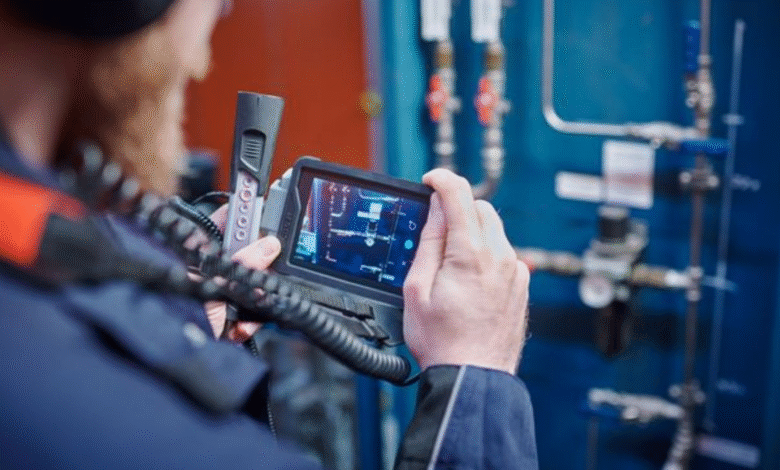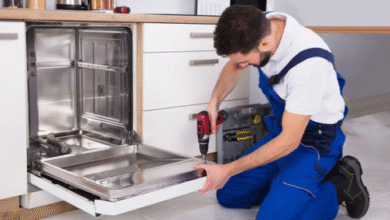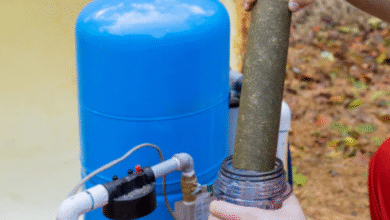Protecting Your Home from Water Woes: Why Leak Detection Matters More Than Ever

Water is wonderful, until it’s not. A hot shower on a frosty morning or a cup of tea bubbling in the kettle relies on it, but the same liquid running unchecked through hidden cracks in your pipes can leave a trail of damage that costs thousands to put right. For many homeowners across the UK, the thought of a sudden burst pipe or a slow, sneaky drip soaking through floors and walls isn’t just inconvenient—it’s a nightmare. And yet, for years, the best we’ve had to rely on is spotting a damp patch too late or catching a sudden drop in water pressure.
These days, though, things are shifting. Technology, often blamed for complicating modern life, has finally decided to give us a hand in protecting the places we love most. And that’s where smart leak detection systems step in.
The Hidden Cost of Water Damage
If you’ve ever had the misfortune of mopping up after a leak, you’ll know the damage doesn’t stop at a soggy carpet. It can creep into the structure of the house itself, leaving behind warped floorboards, mould patches, and a musty smell that no candle can quite mask. Insurance companies in the UK pay out millions every year due to water damage claims. In fact, some reports say that escape-of-water incidents are among the most common reasons for household insurance claims.
Now, not every drip spells disaster, but the reality is, most leaks go unnoticed until they’re big enough to leave a visible mark. And by then, the damage has usually spread. This is why services like Phyn leak detection service are starting to gain real traction among homeowners who’d rather not wait for disaster to knock on the door.
Smart Homes Aren’t Just About Gadgets
When people hear the term “smart home,” their minds often wander to lights that switch on with a voice command or a thermostat you can fiddle with from your phone. Handy, yes, but when you think about it, those are just small conveniences. The real genius of smart home technology lies in its ability to prevent headaches before they start.
Take smart home water loss detection, for example. These clever systems monitor your home’s water use in real-time. They’re not just counting litres—they’re learning your household’s habits, picking up on unusual patterns, and sending alerts if something doesn’t add up. Imagine heading off for a weekend in the Lakes only to discover, thanks to your phone, that water’s been running continuously for two hours. Without such a system, you might have returned to a flooded kitchen. With it, you can act before the worst happens.
Phyn Plus: A Bit of Peace of Mind in a Box
Among the various systems popping up on the market, the leak detection Phyn Plus device has stood out for its accuracy and practicality. It’s not about flashy gimmicks—it’s about understanding water in a way that makes sense for ordinary households. By fitting into your home’s main water line, it keeps a constant eye on the flow and pressure, spotting even tiny leaks that would normally escape notice.
More than that, it can automatically shut off the water supply if it detects a major leak, a feature that could save not just your floorboards but also your sanity. In the UK, where older housing stock often hides a labyrinth of ageing pipes, that level of control can make all the difference.
Why the UK in Particular Needs to Pay Attention
It’s fair to say that Britain isn’t known for its tropical climate, but our homes take a fair beating from the damp and cold. Central heating systems, heavy rainfall, and the quirks of Victorian plumbing all contribute to making leaks a fairly common household hazard. Unlike in countries where homes are often newer and plumbing is laid out with more space, many UK properties come with idiosyncratic layouts that make detecting leaks especially tricky.
Add in the fact that water rates are rising, and the appeal of technology that not only prevents costly repairs but also helps you track usage becomes obvious. It’s not just about saving money—it’s about using water more responsibly in an era when sustainability is on everyone’s mind.
Beyond the Technology: A Cultural Shift
There’s something quintessentially British about soldiering on until something breaks. We tend to fix problems when they become unavoidable rather than preventing them in the first place. But that mindset is starting to shift. More homeowners are realising that being proactive saves more than cash—it saves stress, time, and in many cases, memories tied to the home.
It’s no longer indulgent to invest in systems that quietly keep watch for you. It’s practical. And in a world where many of us are juggling busy lives, the reassurance of knowing your home is being monitored, even while you’re away, is priceless.
Real Stories, Real Relief
Talk to homeowners who’ve installed these systems, and you’ll hear the same theme again and again: relief. One couple in Surrey discovered a slow leak under their dishwasher that had been seeping into the floor for weeks. Their detection system picked up the anomaly before it turned into a much bigger repair bill. Another family in Manchester avoided catastrophe when their system automatically shut off the water after a pipe burst during a particularly frosty night.
These aren’t isolated examples—they’re reminders of why this technology isn’t just a gadget but a genuine safeguard.
So, Is It Worth It?
For some, the hesitation comes down to cost. Fitting a system like Phyn Plus or paying for an installation service isn’t pocket change. But here’s the thing: compare it to the average insurance excess for water damage, or worse, the cost of replacing warped timber and replastering entire walls. Suddenly, the investment doesn’t look quite so extravagant.
And then there’s the intangible factor—peace of mind. Knowing that you’re not going to come home to a paddling pool in your living room is worth far more than the upfront spend.
The Takeaway
Our homes are, in many ways, extensions of ourselves. They’re where we celebrate birthdays, collapse on the sofa after long days, and watch our kids grow up. Protecting them from something as avoidable as water damage just makes sense. The tools are here, the technology works, and the excuses for ignoring it are running out.
So whether you’re considering a full installation or just beginning to research, take this as a nudge. The future of home care isn’t about waiting for things to go wrong—it’s about preventing them from happening in the first place.
After all, isn’t it nicer to enjoy water when it’s pouring from the tap into your tea mug, rather than through your ceiling into the living room?




